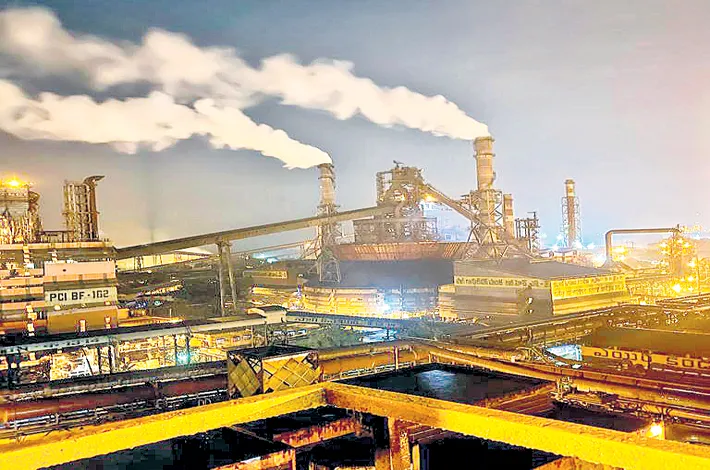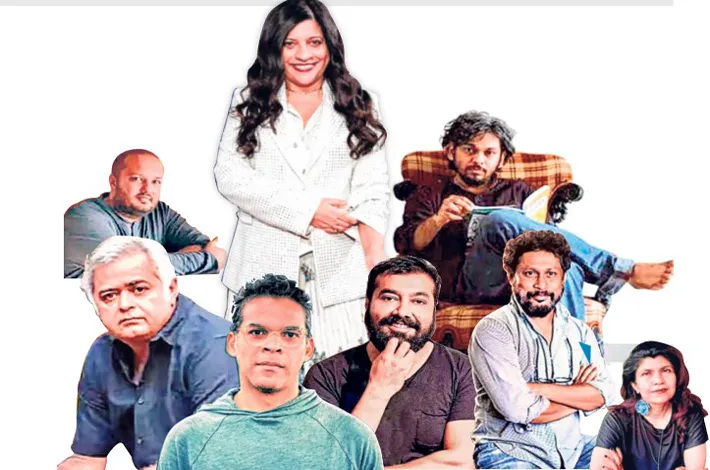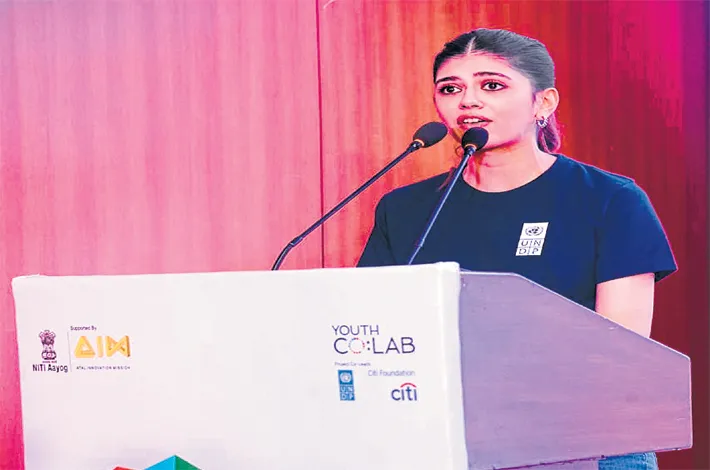Privatisation fears of Vizag Steel Plant resurface
30-08-2025 12:00:00 AM

“The NDA government of engaging in “silent killing” of the steel plant by pushing 44 outsourcing tenders that workers fear could wipe out jobs.”
- Sharmila,
-Andhra Pradesh Congress president
Metro India News | visakhapatnam
The future of the Visakhapatnam Steel Plant (VSP) remains uncertain as Andhra Pradesh Congress leader Y.S. Sharmila demanding a firm guarantee from Chief Minister N. Chandrababu Naidu, Deputy CM Pawan Kalyan, and Minister Nara Lokesh to prevent its privatization. Her plea follows renewed protests against the Union government’s recent outsourcing plans.
RINL, VSP’s corporate entity, is a symbol of Andhra Pradesh’s industrial pride. Established after decades of struggle, including 32 lives lost in protests during the 1960s and 70s, it was commissioned in 1992. As India’s first shore-based integrated steel plant, VSP expanded from 3 MTPA to 7.3 MTPA by 2017, leveraging advanced technology and its strategic coastal location near key ports. It directly and indirectly supports nearly 100,000 livelihoods, providing vital services, such as 18,000 tonnes of medical oxygen during COVID-19.
Despite its strengths, VSP faces persistent challenges. It lacks captive iron ore mines, relying instead on expensive open-market purchases costing Rs. 4,000–8,000 per ton, which strains finances. By 2021, its liabilities surged from Rs. 18,000 crore to Rs. 35,000 crore, coinciding with the Center’s privatization intent. Allegations of mismanagement include diversion of Rs. 2,000 crore and a Rs. 1,000 crore penalty for irregularities, worsening its problems.
In January 2021, the Union government announced intentions to privatize RINL via a 100% strategic sale, sparking protests. Trade unions, united in the Visakha Ukku Parirakshana Porata Committee (VUPPC), blocked assessments and protests lasted over 600 days by late 2022. Andhra Pradesh’s Assembly formally opposed privatization efforts.
However, the government’s stance shifted. While in July 2021 Union Minister Bhagwat Kishan Rao Karad reiterated privatization as policy, in July 2024, Steel Minister H.D. Kumaraswamy claimed, “There is no question of privatization,” pending Prime Minister Narendra Modi’s approval. In January 2025, a Rs. 11,440 crore revival package was announced, including Rs. 1,650 crore in equity and working capital, with plans to restart the third blast furnace by mid-2025.
Amid revival efforts, concerns grow over outsourcing critical units like blast furnaces and power plants to private contractors. On August 22, the Human Rights Forum condemned this move, viewing it as an attempt to dismantle VSP’s public sector character. HRF warns that outsourcing dangerous operations endangers workers and communities, citing rising industrial mishaps.
Sharmila also accused the NDA of “silent killing” VSP with 44 outsourcing tenders that could threaten jobs. She noted the decline in employment from 35,000 during her late father’s tenure to just 20,000 today. She criticized outsourcing as a plan to transfer a Rs. 4 lakh crore asset to corporations under the pretext of efficiency.
Opposition from NDA partners—TDP, BJP, and JSP—is strong. Leaders claim outsourcing is routine, not privatization, pointing to the revival package and Rs. 2,600 crore state contributions as proof of commitment. Deputy CM Pawan Kalyan dismissed privatization fears, citing discussions with Union Home Minister Amit Shah.
Experts warn that without captive iron ore mines and debt restructuring, revival may falter. Unlocking iron ore could save Rs. 4,000 crore annually. Expanding production to 20 MTPA could reinforce VSP as a strategic national asset vital to India’s steel development.
As of August 29, 2025, the government insists VSP will not be privatized and emphasizes revival. However, the lack of a clear withdrawal of prior privatization plans and ongoing outsourcing projects deepen doubts. Sharmila’s call for transparency highlights the urgency of clarifying VSP’s future—a decision that will determine whether it remains a public asset or succumbs to privatization.








